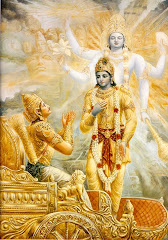
Sunday, March 27, 2011
Delhi Is Not Far by Ruskin Bond.

Wednesday, March 23, 2011
Ruskin Bond's Book of Nature.

This one came along with the delightful 'Book of Humour'. Well, almost. They were separated by just 4 days. Which does not make them twins... even fraternal ones at that... but so what, both make for a very good read!
I finished reading this book a while back... and I wonder how Ruskin Bond manages to weave such simple, joyous tales all the time. Refreshing, fragrant with the smell of nature, and a charm that makes you want to read them again and again. They never let your interest drift or your mind to wander. This one is yet another gem from his treasure-trove. When you relax in your small verandah or on a garden seat, take this book with you and open it at any page. You will be well rewarded.
Having grown up in the hills, in the lap of nature... in once idyllic Mussourie, Kasauli, Shimla, Dehradun and Jamnagar... no one understands nature like Ruskin Bond and it takes his ability to put this wonder into words. He is indeed nature's favourite child. He has celebrated the wonder and beauty of nature as few other contemporary writers have, or indeed can... for over fifty years and counting. Apparently he has yet to lose faith in Indians. In 2009, a report was published which stated that he was seen going down to the Mall in the evenings and stopping drivers, pleading with them not to honk so much. Bond was 75 then. You have to be made of something special to be that age and yet optimistic about changing Indians. It is an indication of his love for the hills and for nature and speaks volumes of the incorrigible optimist that he is. He is a believer in universal culture. Only someone like him can weave such tales, given the serenity and lyricism of his prose. No one else can. For sure!
In these pages, he writes of leopards padding down the lanes of Mussoorie after dark, the first shower of the monsoon in Meerut that brings with it a tumult of new life, the chorus of insects at twilight outside his window, ancient banyan trees and the short-lived cosmos flower, a bat who strays into his room and makes a night less lonely. He captivates with his collection of nature pieces... not just from the Himalayan foothills that he has made his home, but also from the cities and small towns that he lived in or traveled through as a young man. And he is young at heart. Always. Forever. No wonder he has few equals. He shares a deep camaraderie with nature and his stories flow smoothly like a sparkling brook... no dramatic flourishes, no villains, ugly fights, in them. There is warmth and plenty of it and the simple pleasures of life... which make them so very endearing.
He is a painter of words. Bond uses his pen as a brush to paint captivating images of his observations on and his experiences with nature and beckons his readers into his imagination... like the sweet fragrance of a flower in full bloom during spring. A book that relaxes the eyes, rests the mind, lulls the noise and lets one drift into the idyllic life with nature that most of us are unable to lead... thanks to incessant 'development' made in the name of 'progress'. The 'Book of Nature' is liberally sprinkled with gentle humour and gives you the feeling... that you are having a one-on-one conversation with the narrator himself over a cup of freshly brewed filter coffee. Or even a cup of masala chai. It is very, very soothing... almost like a lullaby on a hot summer afternoon. While the fragrance of his words... lingers on and on and on.
Some snippets about Bond: Come every Saturday, the portly figure of Ruskin Bond can be seen at the Cambridge Book Store sipping hot tea and obliging autograph hunters. Opened in 1952, just two years after Bond finished his schooling, he fondly savours the nostalgia of this place.
"I still remember buying Agatha Christie's 'Death on the Nile' in 1965 for Rs. 3 from this store," says the creative writer strolling down memory lane, while having a cup of tea. Thanks to Bond's voracious appetite for words in black and white, the store has remained in business. "Bond is a loyal patron of our book shop and his presence provides readers a chance to interact with him," states 85-year-old LD Arora, the owner of the shop. Unfazed by tourists and their accompanying children, who keep pestering him for autographs, he revels in showing his funny side to all the visitors.
"His mere two hours presence at the shop sells about 50-100 books every Saturday," discloses Sunil Arora, the owner's son and a personal friend of Bond.
When Jalandhar's Vandana and Delhi's Shelly Jain hurriedly purchased Bond's books to get them signed, an avid soccer lover opted for his autograph on a Ronaldo picture. "I am also a Ronaldo fan," reveals the storyteller later, while trying to catch soap bubbles blown by playful children in the shop. Clad in a red jumper, the ageing writer still retains his loyal readers, who seem to keep increasing by the day.
"He has an elephant's memory," recalls a lady from Delhi, who had last met Bond 21 years ago during a visit to the hill town as a student of St Thomas' School and now seen getting a couple of Bond's books autographed for her children. Funnily, when the poor weather dampened Arora's business, it was a good time for writers, points out Bond giving slight heartburn to his friend. But how would he walk up to his Landour home without an umbrella?
Ergo, went the shop assistant and came with a bunch of colourful umbrellas. And Bond selected the obvious – the blue umbrella. Was that meant for Biniya - the 11 year old girl and the protagonist of his famous story 'The Blue Umbrella'? Well, nobody knows. (But as it turned out later, Bond's beloved Blue Umbrella had a gaping hole and had to be replaced).
Photograph: Pic courtesy: link.
Friday, March 18, 2011
Do and Die: The Chittagong Uprising: 1930-34 by Manini Chatterjee.

Wednesday, March 16, 2011
A 'history' of the Indian subcontinent - Part II.

Author's note: Do read the 1st part of this post here.
This is the 2nd part of the same post that I discovered while trawling the net... and decided to share it on my blog... so that all my readers can be entertained as well :)
After the Tehmuri dynasty was over the throne of unified India was once again empty, and since somebody had to be king it was decided by mutual consent to let Babur, an unemployed regent at the time, take the seat of power. Babur had lost his own kingdom in Samarkand you see, and since Samarkand was a pretty big place, he didn't want to go looking for it.
Besides, Babur was obligated by history to fight in the battle of Panipat and found the Mughul Sultanate. If he hadn't come to the sub-continent, the battle of Panipat would've been rather one sided, given that only Ibrahim Lodhi would have turned up for it, who himself might have been convinced to stay home learning of Babur's lack of interest. Then nobody would have turned up for it. That would have been very embarrassing for historians.
To become the unequivocal ruler of Hindustan, Babur also had to deal with the Rajputs. He had to defeat Rana Sanga, Ranatunga and other members of the Sri Lankan cricket team to consolidate his authority.
Babur was reputedly an extremely strong man who used to climb the stairs to his palace with a couple of men on his shoulders. This, he said, was for exercise although there are rumours that he provided this service for some much needed disposable income. It was tough being a ruler in those days, the salary was very little and opportunities for kickbacks and appropriations so few. There were no Swiss banks to embezzle the national treasury into, either.
Babur was succeeded by his son Humayun, who had spent years coining the royal title Al-Sultan al-'Azam wal Khaqan al-Mukarram, Jam-i-Sultanat-i-haqiqi wa Majazi, Sayyid al-Salatin, Abu'l Muzaffar Nasir ud-din Muhammad Humayun Padshah Ghazi, Zillu'llah for himself. He really should have done something better with his time, because no sooner had he ascended to power that someone with a much shorter name and much more experience in warfare defeated him and took his throne.
Humayun, like any blue-blooded emperor in his position, did the brave thing and fled to Persia. Since Sher Shah Suri was much older than the young Mughul ruler, Humayun's strategy was now to wait for the Pashtun lord to die first, an eventuality that occurred in the summer of 1545. Nine years later, Sher Shah's son followed suit.
Emboldened by the natural demise of his enemies, the ambitious Humayun marched back into India with his eyes towards the heavens, and fell down numerous times for not looking where he was going. After many wrong turns and much bickering with his generals, he finally reached Delhi in 1555 to lay down on his father's throne, as he was far too tired to sit.
Humayun's death proved to be as comical as his life, as in early 1556 he fell down the library stairs after getting his robe caught under his foot, injuring himself badly. Or injuring himself very well, rather, because he died just three days afterwards. This should serve to highlight the danger posed to health by reading too many books.
It is also worth repeating that India was at one time ruled by a man who tripped himself down the stairs to his own death. This should be kept in mind when furiously contemplating how a company of traders and merchants from Britain managed to take down an entire empire in a matter of years. They just built their offices on the second floor.
Humayun left his throne to his thirteen year old son, Akbar, who proved to be an astute monarch. He gave the sub-continent a thorough system of taxation, printed his own currency and gave the media and judiciary all the independence that could reasonably be expected from an unelected monarch which, it goes without saying, pales in comparison to the freedom granted by today’s elected monarchs.
During his regime, the prices of utilities and food items were very low, at least much lower than they are today. Poor people could afford sugar and petrol, they didn't have to ration their tea, they weren't forced to sell their internal organs just to pay the electricity bills and all in all it was a time of greatly relative prosperity.
Akbar-e-Azam was a religious pluralist who had no delusions of self-grandeur. Those rumours were base and false. His Majesty Imam-i-'Adil, Amir-ul-Mu’minin, Sultan ul-Islam Kafatt ul-Anam did not start his own religion for self-deification. Din-i-Ilahi was a self-less venture intended to strengthen the communal bondage between the various religious communities of India and his undisputed throne.
But Akbar (played wonderfully by Prithviraj Kapoor) having conquered all the external threats to his power would find trouble much closer to home. His eccentric son Salim (Dilip Kumar) would become smitten by one of the courtly concubines, Anarkali (Madhubala) while his wife, Jodha Bai (Durga Khote), would largely be a spectator as Bahar (Nigar Sultana) exposed the affair in an open court. Akbar would sentence Anarkali to be buried alive as the pleas of her mother (Jilloo Bai) would fall on ears not quite deaf but definitely hard of hearing.
Critics agree that the character of Mann Singh (played by Murad) was largely inconsequential to the proceedings but Anarkali's classical rendition of 'Pyar Kiya to Darna Kya' received great plaudits and would inspire the latter day Lata Mangeshkar hit.
In Part 3: Dilip Kumar's revenge and ascension to the Mughal throne as Jahangir.
Meanwhile, more practice questions:
"Have you ever fallen to your death down any stairs?"
"Why not?"
A point to ponder: Why did Asia stagnate despite being ahead of Europe earlier? Just before Europe's take-off, Central Asian nomads, who reveled particularly in destroying formal knowledge, attacked Baghdad, India and China. One of Ancient India's seats of learning, the Nalanda University burned for 3 months after Khilji's attack while Mongols piled the books in Baghdad's House of Wisdom to cross the Tigris. Without such attacks, some Asian intellectual centers too may have soon then sparked Europe-like societal changes. While Europe suffered warfare too, its intellectual repositories survived them.
Note: For further readings:
1. The Legacy of Muslim Rule in India.
2. The Convenient Omissions From Islamic History.
3. Why the West? Race, Religion, Culture and Development.
4. On Raja Paurava and Alexander.
Photograph: A still from the movie 'Mughal-e-Azam'... with Prithviraj Kapoor as the Emperor Akbar and Dilip Kumar (Yusuf Khan) as Prince Salim (later Emperor Jahangir). Pic courtesy: link.
Wednesday, March 9, 2011
Review: The Silent Monument by Shobha Nihalani.

The journalist (Parag Saxena) who finds the ancient artifact is murdered. His feisty widow Manzil is suddenly burdened with the deadly secret, the contents of which could rock the nation. She becomes the most wanted person in the country.
Sunday, March 6, 2011
A 'history' of the Indian subcontinent - Part I.

Tuesday, March 1, 2011
Review: Cricket Till I Die! by Upneet Grover.














